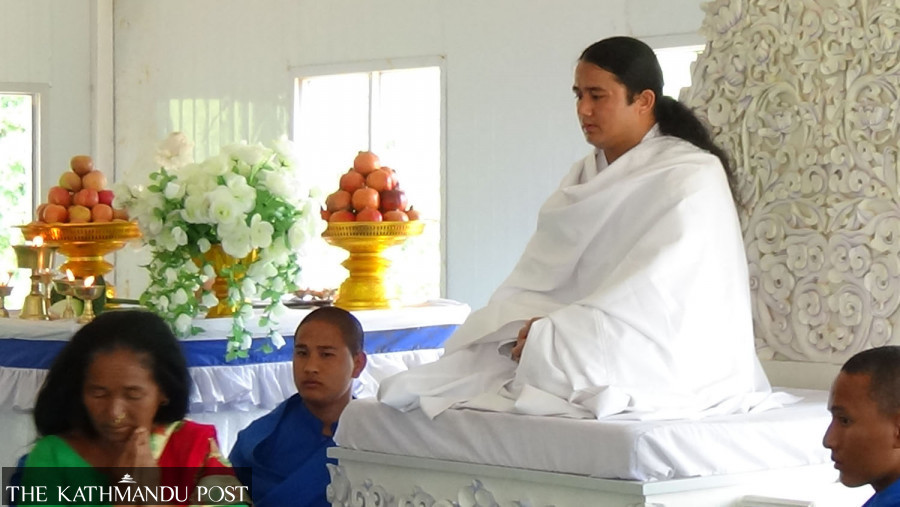Editorial
Of bogus 'babas'
Someone’s public legitimacy, however big, should not come in the way of the criminal justice system.
Nepal Police finally “found” the godman who had gone missing for years right under their nose. Ram Bahadur Bomjan, aka “Little Buddha”, had shot to fame in 2005 after allegedly meditating for months without food, water or sleep. After emerging from his meditation, he and his followers had set up ashrams in Bara, Sarlahi, Sindhupalchok and Sindhuli districts. But then his darker side started coming to light. He had repeatedly dodged the police despite him being slapped with criminal charges as heinous as rapes, sexual assaults, and murders. He is also charged with forcibly disappearing—and even allegedly killing—his disciples Rita Bot (Majhi) of Sarlahi District and Sancha Lal Waiba of Makwanpur District, among others. In addition, he faces charges of raping a 15-year-old girl who had been staying in his ashram as a nun.
Despite the Sarlahi District Court issuing an arrest warrant against him in February 2020, the police’s attempts to nab him were half-hearted. Behind the garb of spirituality and religion, Bamjon continued to go scot-free as the state looked the other way. Moreover, he continued to live lavishly, in his ashram in Sindhupalchok and, lately, in Kathmandu. The police have confiscated Rs33 million in Nepali currency from his Budhanilkantha residence, in addition to currency notes from 16 countries, as well as 15 mobile phones, laptops, and a fleet of expensive motor vehicles.
Now that the accused has been nabbed, the families of victims have a renewed hope of getting justice. Bomjan’s is not an isolated case, though. The empire of crime he allegedly created in his ashrams by exploiting the goodwill of a legion of his followers points to a larger nexus of spirituality and criminality in Nepal. In 2019, Krishnadas Giri, another spiritual guru, had been arrested on charges of raping his follower. Even earlier, in 2017, yet another spiritual guru, Tulku Lama, had been arrested on charges of molesting and raping his followers, claiming his divine power could cure their illnesses.
The spirituality-criminality nexus is not Nepal’s problem alone. Next door, in India, several spiritual gurus are in jail for abusing power and exploiting their followers’ trust. Asumal Harpalani aka Asaram Bapu, Rampal, Gurmeet Ram Rahim and Nithyananda are some Indian spiritual gurus serving jail terms for crimes including rape. What these “babas” have in common, both in India and Nepal, is their misuse of public legitimacy earned through a huge base of followers. The fact that they count top political leaders as their followers hinders the justice process. By pleasing, even protecting, the babas, the politicians often translate the fans of the babas into votes in elections. Moreover, authorities often overlook the criminal nexus, fearing repercussions from many followers of the babas.
It is this coming together of politics, spirituality and criminality that has led to impunity even on allegations of heinous crimes against spiritual gurus. The arrest of the “Little Buddha” has brought a glimmer of hope for justice in several similar cases, some of which are almost a decade-and-a-half old. The police have finally taken a bold first step. Now, it is up to Nepal’s court system to do the right thing. Someone’s public legitimacy, even that of a famous spiritual leader, should not come in the way of the criminal justice system.




 10.12°C Kathmandu
10.12°C Kathmandu













